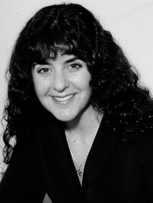Tuesdays are pediatric surgery days at The Johns Hopkins Hospital in Baltimore, Md. Families come from around the world for everything from brain and heart surgeries to removing tonsils. The differences of countries, class and cultures seem to disappear in a hospital waiting room, scrubbed to the essentials: sick children and worried parents. As our 18-month-old son underwent four hours of reconstructive hand surgery, we were like all the other parents. We waited, worried and prayed. Would the surgeries work? Would the skin grafts take? Would our toddler respond well to the anesthesia and medicines? Unlike some of the other parents, though, one thing we never worried about was the cost. We have medical insurance. The surgeries and doctors’ visits cost nearly $10,000, but we had to pay only a few hundred dollars for co-payments, X-rays and medicines.
This is not the case for 9.4 million uninsured children in the United States. Since 1997, over six million poor children have received health insurance through the State Children’s Health Insurance Program. This important law offers states matching federal funding to cover uninsured children whose family income, although low, is higher than allowed to qualify for Medicaid. The program came up for renewal in fall 2007; and state governors, children’s health advocates, the U.S. Conference of Catholic Bishops, Catholic Charities, the Catholic Health Association and others all urged that the program be strengthened and extended. Because of the spiraling costs of health care, more money is needed just to provide the same level of coverage for the children already enrolled in S-chip. The Congressional Research Service notes that 21 states will be unable to maintain present coverage over the next year if the current budgeted amount, $5 billion, is not increased. Expanding coverage to include prenatal care for the unborn, as the Catholic Health Care Association, Catholic Charities and the U.S. Catholic bishops recommend, would require more investment. A strong bipartisan consensus passed legislation to continue and modestly increase health insurance coverage for uninsured children, but President Bush twice vetoed the S-chip legislation late last year, and Congress was narrowly unable to override the president’s veto. Temporary reauthorization was passed to continue the program until after the election.
Much of the president’s position amounts to political posturing in an election year. After spending nearly a trillion dollars on the wars in Iraq and Afghanistan (most of which enriches U.S. defense contracting companies) while cutting the taxes of the wealthy and increasing the U.S. budget deficit to an all-time high (according to the Treasury Department) of $311 billion for the first half of this budget year, President Bush is now trying to regain his credentials as a fiscal conservative by denying health insurance to poor children as “too expensive.” Two weeks of the war in Iraq cost more than the entire S-chip program costs per year. The president disingenuously charges that the S-chip program amounts to federalized, socialized medicine. But the program is state-run and provides money for private health insurance.
The real debate centers on the definition of poverty. The federal government defines poverty as an income of less than $16,000 a year for a family of three, and less than $20,614 for a family of four; but most research shows that it takes more than twice those amounts to cover basic expenses for such families. By this more accurate measure, 30 percent of Americans live in poverty. The government’s numbers are based on 2005 numbers, and were criticized as too low even then. Since then the costs of food, fuel, housing and health care have risen dramatically while jobs have been cut, further squeezing poor families, while the government definitions of poverty have not changed. The federal poverty rate is thus not the real poverty rate.
The S-chip program attempts to bridge the difference, covering poor children the federal government does not count as poor. Katherine Newman, a professor of sociology and public affairs at Princeton University, calls these 50 million Americans, including 20 percent of U.S. children, “the missing class.”
The president and some members of Congress argue that expanding S-chip would extend coverage to middle-class and rich children. The facts do not bear this out. According to Georgetown University’s Center for Children and Families and the Congressional Budget Office, over 90 percent of children enrolled in S-chip are from families with incomes below 200 percent of the federal poverty level. More than 84 percent of the nearly four million uninsured children targeted by Congressional legislation are from low-income families already eligible for S-chip.
Professor Newman notes: “It’s not clear that you can win an election focusing on the dispossessed in our country...we need to put these people back on the radar screen, and understand that if we invest in them, we invest in the prosperity of the nation.” The 2008 presidential candidates differ on this issue. Senator John McCain agrees with President Bush’s veto of the S-chip legislation, saying, “The American people have rebelled against out-of-control spending.” In contrast, Senator Barack Obama favors expansion of the S-chip program, noting, “In the richest nation on Earth we must no longer stand by while nine million children live without health care.” Whoever wins in November, the issue will be revisited. We owe America’s most vulnerable children medical care, not political posturing.








